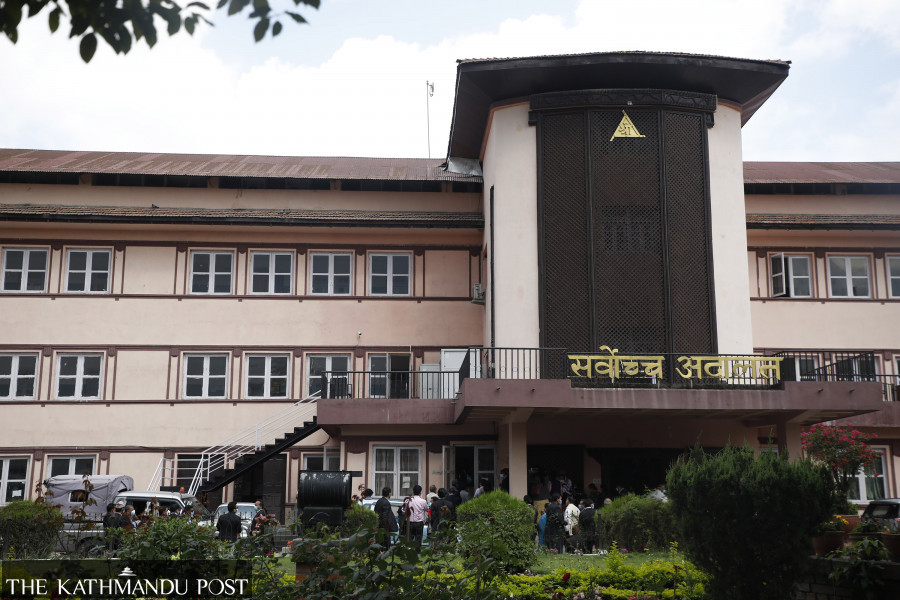Editorial
Truth above all else
Restriction of media freedom would, in effect, lead to the limitation of civil liberties.
The full text of the verdict that quashed the writ petition filed by advocate Toyanath Dhungana in February 2018 yet again vindicates the series of news reports published by Kantipur daily on the discrepancies in the date of birth of Chief Justice Gopal Prasad Parajuli. It, however, highlights the importance of freedom of the press once again. The verdict explicitly making it clear that fair criticism of the judiciary or any concerned justice does not amount to contempt of court comes as a milestone move at a time when democracy is under attack from all sides. It has become a clichéd argument to constantly quote the constitution on freedom of expression and freedom of the press, but such a reminder never seems to lose its significance.
Dhungana’s claim in the news report concerning the chief justice amounting to contempt of court may have been a feeble attempt to elevate the status of the court and the individuals in question beyond the sphere of criticism. But quite clearly, Dhungana was on a hiding to nothing which he may have sensed pretty early on. The verdict clearly states that freedom of expression, freedom of the press and the court's dignity are all sensitive matters.
The term Fourth Estate or the Fourth Power is usually reserved for the press and the news media collectively for its ability to advocate political issues. It is an effective medium to provide balance to the power centres in a state. But it has its share of conflict with successive governments that have tried and failed to curtail its powers. As recently as 2019, a new Media Council Bill designed to curtail the power of a free press had been introduced, but it was put on hold following widespread criticism.
In addition to the Media Council Bill, the Mass Media Bill proposed a fine of Rs10 million and a jail term of three years for violating its provisions. These predatory bills were clearly designed to restrict the challenge they posed to the government. So what is the way forward? An increasing trend has been the acceptance of the idea of self-regulation by the consortium of media houses by setting ethical standards as the best way forward to provide a perfect balance between the media’s mission to empower people’s participation and the restrictions it aims to provide in preventing abuse of its strength.
It is, however, only possible if viewed with clarity and pragmatism from those that have often tried and failed to subjugate the people’s right of expression. Lest we forget, restricting media freedom would, in effect, lead to the limitation of civil liberties. While the media is not exempt from criticism when it is at fault, it cannot be gagged just because it is doing its job and questioning the integrity of those in positions of power. It goes without saying that the media is accountable to the people and not the powers that be. And if it happens to upset those at the helm when unearthing truths, it is to be understood that the media is doing its job properly.




 13.12°C Kathmandu
13.12°C Kathmandu














